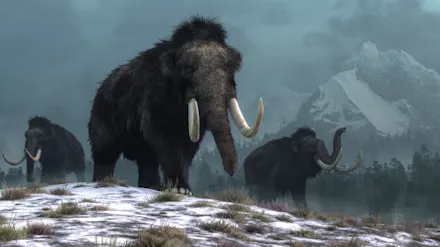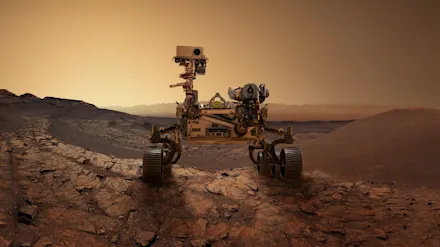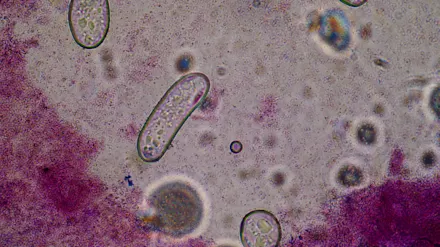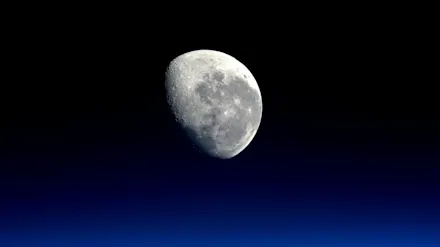
Featured news
Cheese may really be giving you nightmares, scientists find
Scientists find lactose intolerance may link consuming dairy, bad dreams, and poor sleep.


Featured news
Scientists find lactose intolerance may link consuming dairy, bad dreams, and poor sleep.

Health
Rare diseases affect millions worldwide, yet the one-size-fits-all model of drug development leaves patients with few treatment options. Now a European research project called NANOSPRESSO aims to tip the balance in patients’ favor by boosting access to low-cost bespoke gene and RNA therapies.

Environment
Stable isotope analysis can tell apart ivory from mammoths dug up from the permafrost and modern elephants, closing a loophole for selling elephant ivory

Robotics and AI
Researchers found some LLMs create four times the amount of CO2 emissions than other models with comparable accuracy. Their findings allow users to make informed decisions about their own LLM use.



Health
Scientists find lactose intolerance may link consuming dairy, bad dreams, and poor sleep.

Health
Rare diseases affect millions worldwide, yet the one-size-fits-all model of drug development leaves patients with few treatment options. Now a European research project called NANOSPRESSO aims to tip the balance in patients’ favor by boosting access to low-cost bespoke gene and RNA therapies.

Health
Researchers from the US have reported the initial results from the first quantitative study to focus on the contribution of multiple new psychoactive substances (NPS) from a range of classes to roadway crashes in the US. They found that 2% of 1,000 adults who visited one of two trauma centers in California within six hours after being involved in a roadway crash had traces of NPS in their blood. The most frequent were bromazolam, para-fluorofentanyl, and mitragynine. In most (88%) of these positive cases, NPS had been taken together with traditional recreational drugs such as fentanyl, methamphetamine, and cocaine. These results indicate that NPS are a new concern in roadway crashes and put lives at risk.

Health
It has been suggested that statins could boost the chances of survival of patients with sepsis because of their multipronged effects on inflammation. Here, researchers from China used the MIMIC-IV database to perform a retrospective cohort study on two large, matched groups: critically ill patients with sepsis in the Beth Israel Deaconess Medical Center who received standard of care with or without statins. The 28-day all-cause mortality was 39% lower in relative terms [an absolute reduction from 23.4% to 14.3%] in the statin group, suggesting a protective effect. Previous randomized controlled trials that didn’t find any such benefit might have been too small or have had other weaknesses. The present results need to be confirmed in a large, well-designed randomized clinical trial.

Neuroscience
In well-designed gardens, our gaze shifts quicker and more often. Researchers believe this could be key to understanding the relaxing effects gardens can have on viewers.

Neuroscience
A new model of brain metabolism – the most complex ever generated –shows how altering key chemicals could restore aged cells to their youthful activity and resilience.

Neuroscience
The auricular muscles, which helped our distant ancestors move their ears to improve hearing quality, activated when people were trying to listen to competing sounds.

Neuroscience
Scientists show that low-status male cichlid fish have higher levels of oxidative stress in their brain, which is linked to poorer mental and neurological health in humans.

Environment
Stable isotope analysis can tell apart ivory from mammoths dug up from the permafrost and modern elephants, closing a loophole for selling elephant ivory

Environment
Scientists studying the impact of solar power on local neighborhoods find that most people living close to large-scale solar plants wouldn’t mind if a new plant was built nearby.

Environment
First video footage shows impacts of anchor and chain damage caused by cruise, research, fishing, and private vessels on Antarctic sea floor and animals, highlighting critically understudied conservation issue.

Environment
In a new article published in Frontiers in Organizational Psychology, Daria Haner, Dr Yilei Wang, Dr Deniz Ones, Dr Stephan Dilchert, Dr Yagizhan Yazar, and Karn Kaura unveil surprising new findings: the world’s most sustainable businesses are the world’s most long-lived businesses, too. In this guest editorial, they explain their results, discuss the potential underlying reasons for their findings, and underline the importance of sustainability to the future of business.

Psychology
Study participants asked to choose whether to empathize with or describe people preferred to empathize with groups, despite finding it difficult and distressing.

Psychology
A researcher put physical distance between people and their phones and found that our devices may not be the cause of our distraction – it’s what we do with them.

Psychology
Highly playful people are realistic about their circumstances, scientists say, but they are more resilient in the present and more optimistic about the future.

Psychology
Scientists find that peer acceptance in young teenagers, and close friendships in older teenagers, predict low social anxiety and high life satisfaction in young adults.

Space sciences and astronomy
Scientists successfully identify microbe fossils in terrestrial rocks like those found on Mars, opening up the possibility of searching for fossils on the Red Planet.

Space sciences and astronomy
Scientists explored microbial movement as a possible biosignature to detect life on Mars and beyond, cheaper and faster than ever before.

Space sciences and astronomy
Space belongs to no-one, yet many nations and private entities now plan to lay their claim on its resources. In a recent Frontiers in Space Technologies article, Nishith Mishra, Martina Elia Vitoloni and Dr Joseph Pelton shared their thoughts about how plans to exploit the ocean floors could impact the way resources from space are used and managed.

Space sciences and astronomy
Researchers found that astronauts’ processing speed, working memory, and attention slowed down, but a few months in space did not result in lasting cognitive impairment
Get the latest research updates, subscribe to our newsletter